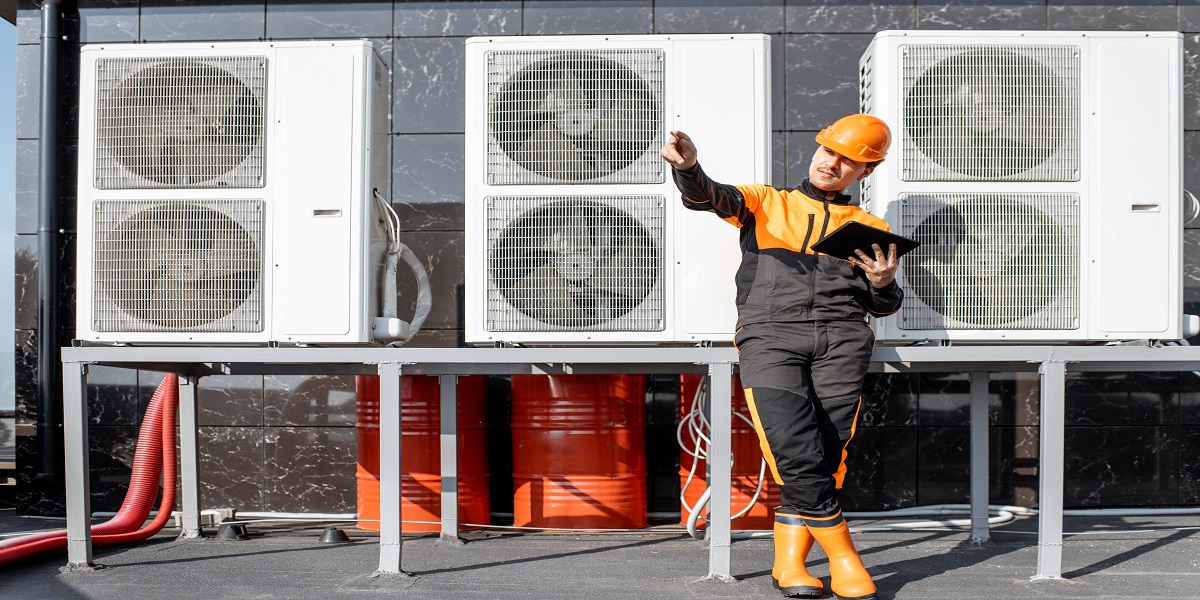
In the simplest terms a heat pump uses electricity and refrigerant to move heat from one location to another. To provide heat, a heat pump extracts heat from air outside of the home and transfers it to coolant. The coolant is then compressed, which increases the temperature significantly. The coolant is then moved to the indoor unit of the heat pump, which then passes air over the hot coolant, increasing the temperature further, to satisfy the thermostats call for heat inside the home.
The heat pump consists of two major parts, a ‘wall cassette’ which is mounted inside the home, and a condenser unit that stays on the outside of your home. These two units are connected by a refrigerant line. The wall cassette is controlled by a thermostat to provide you with both heating and home air conditioning.
When you want heat, the pump will turn on the fan in the outside unit which will begin extracting heat from the air outside of your home. The refrigerant line then carries this heat to the indoor unit which then transfers it to your home. If you want to use the heat pump for home air conditioning, then the process is reversed.
What are the Benefits of Having a Heat Pump?
. As a heat pump only uses electricity for power rather than for the actual generation of heat, they offer a remarkably high efficiency rate. The amount of heat generated is proportional to the amount of electricity used, and because the electricity is only used to power two fans it is very efficient.
. Higher efficiency obviously means lower electricity bills. Heat pumps are very inexpensive to run. If you are using one alongside traditional heating systems such as oil or gas, you’ll find extra savings by using a heat pump as it offsets some of the work originally done by the traditional heating system alone.
. Heat pumps can also improve the carbon footprint of your home, as they run off electricity and there are plenty of renewable forms of electricity such as wind power, solar power and tidal power. In comparison traditional forms of heating rely on gas which burns precious fossil fuels.
. If you have a room that is always very cold and one which is getting a bit hot, the heat pump can extract the cold air from one room and transfer it to the hot room, providing home air conditioning. It can simultaneously take the hot air out of the warm room and dispose of it in the cold room.
Is Your Home Suitable?
There are a few factors to consider before installing one. You will need an outside space that you do not mind digging up to lay the foundations and the ground loop. If you do not have this space it may be possible to install an air source pump system, which is move compact and suited to an urban area.
You should also know that ultimately, the level of insulation of your home will impact the cost and energy efficiency offered by heat pumps. New builds or newly renovated properties are, therefore, more ideal for the installation of heat pumps.
Posted By admin on December 21st, 2020 in blog, Heat Pumps